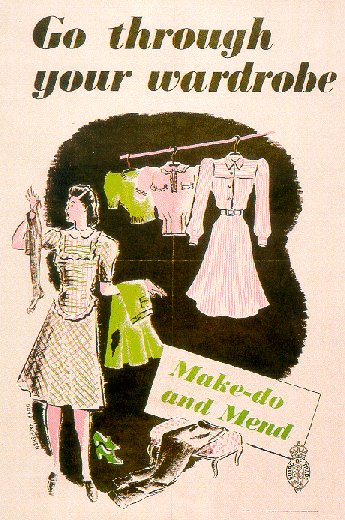With the obvious shortages faced by the people of the British home front, any form of unnecessary wastage be it food or materials, was deeply discouraged.
Reminders to 'make do' and NOT to squander were commonplace in the form of posters, newsreels and pamphlets. The menacing 'Squander Bug' was one character introduced to denounce blatant waste.
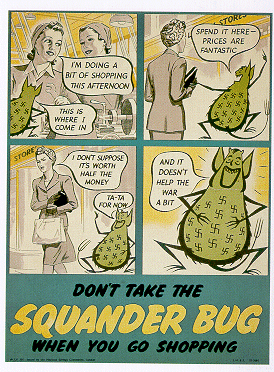
Lord Woolton reminding civilians in one of his many broadcasts to the nation
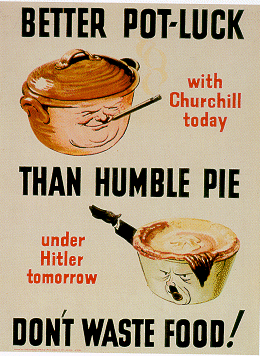
A 'Churchillian' reminder that in order to win the war, food was NOT to be wasted in the kitchen!
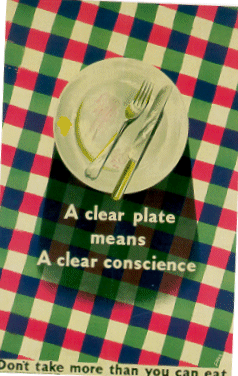
Another reminder NOT to waste food in the wartime kitchen!
With petrol rationing having also been introduced resulting in fewer private motor cars on the road, a greater reliability in public transport evolved.
With bus and train systems already severely restricted and undermanned, the general public were asked to consider whether or not they needed to use public transport and to bear in mind those who might need the transport more. Born from this concept was the 'Is your journey really necessary?' slogan.
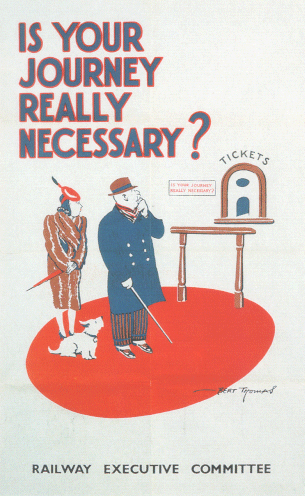
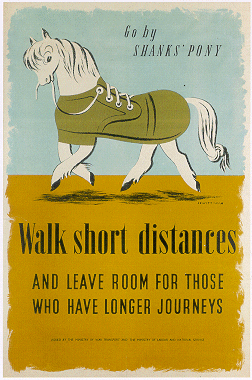
PICTURE: A reminder to walk short distances and leave the spaces on public transport for those who need to travel longer distances.
After all, nobody wanted to be branded a TRANSPORT HOG
With the scarcity of so many everyday items during World War Two, Britons were encouraged to become much more self-sufficient and make greater use of the materials they had.
The phrase most associated with this British wartime drive for self-sufficiency was 'MAKE DO and MEND'.
Some of the ingenious ways of how people got by are shown below.
